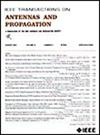A Fast and Generalizable ML-Assisted Framework for Full-Wave Inverse Scattering
IF 5.8
1区 计算机科学
Q1 ENGINEERING, ELECTRICAL & ELECTRONIC
引用次数: 0
Abstract
This article proposes a novel machine learning (ML)-assisted framework for solving full-wave inverse scattering problems (ISPs) in inhomogeneous, high-contrast media. Traditional deterministic algorithms used to solve such ISPs face significant challenges due to their high computational cost, inherent nonlinearity, and strong ill-posedness. Recently, the introduction of ML methods has enabled the development of rapid solutions to this problem. However, these solutions’ limited out-of-distribution (OOD) generalization capabilities pose significant challenges for practical applications. To address these challenges, we propose a novel pathway to combine ML models with full-wave inversion (FWI). In this framework, ML models serve as auxiliary tools, supplying prior knowledge for use in FWI. A mathematically guaranteed bounds-generation algorithm is proposed to bridge ML models with FWI, and a limited-memory Broyden-Fletcher–Goldfarb-Shanno algorithm with bound constraints (L-BFGS-B) is introduced in FWI to incorporate these bounds. In contrast to the existing research, our framework leverages ML to enhance computational speed while preserving the interpretability and broad applicability of physical models, making it outstanding for OOD samples. We validate the framework across three numerical datasets and conducted rigorous ablation studies on each component to confirm its contributions. To further assess the robustness of the framework, we perform a noise stability study under perturbed conditions. In addition, we extend the framework to multifrequency and time-domain inversion schemes, thereby demonstrating its broad applicability across diverse FWI tasks. We also integrate transfer learning techniques to highlight the framework’s strong compatibility with emerging ML techniques.全波逆散射的快速、可推广的ml辅助框架
本文提出了一种新的机器学习(ML)辅助框架,用于解决非均匀、高对比度介质中的全波逆散射问题(ISPs)。传统的确定性算法由于计算成本高、固有的非线性和强病态性而面临重大挑战。最近,机器学习方法的引入使得这个问题的快速解决方案得以发展。然而,这些解决方案有限的分布外(OOD)泛化能力给实际应用带来了重大挑战。为了解决这些挑战,我们提出了一种将ML模型与全波反演(FWI)相结合的新途径。在这个框架中,机器学习模型作为辅助工具,为FWI提供先验知识。提出了一种数学上保证的边界生成算法来桥接ML模型和FWI,并在FWI中引入了具有边界约束的有限内存Broyden-Fletcher-Goldfarb-Shanno算法(L-BFGS-B)来合并这些边界。与现有研究相比,我们的框架利用ML来提高计算速度,同时保持物理模型的可解释性和广泛适用性,使其在OOD样本中脱颖而出。我们通过三个数值数据集验证了该框架,并对每个组件进行了严格的烧蚀研究,以确认其贡献。为了进一步评估框架的鲁棒性,我们在扰动条件下进行了噪声稳定性研究。此外,我们将该框架扩展到多频和时域反演方案,从而证明其在各种FWI任务中的广泛适用性。我们还集成了迁移学习技术,以突出框架与新兴机器学习技术的强兼容性。
本文章由计算机程序翻译,如有差异,请以英文原文为准。
求助全文
约1分钟内获得全文
求助全文
来源期刊
CiteScore
10.40
自引率
28.10%
发文量
968
审稿时长
4.7 months
期刊介绍:
IEEE Transactions on Antennas and Propagation includes theoretical and experimental advances in antennas, including design and development, and in the propagation of electromagnetic waves, including scattering, diffraction, and interaction with continuous media; and applications pertaining to antennas and propagation, such as remote sensing, applied optics, and millimeter and submillimeter wave techniques

 求助内容:
求助内容: 应助结果提醒方式:
应助结果提醒方式:


